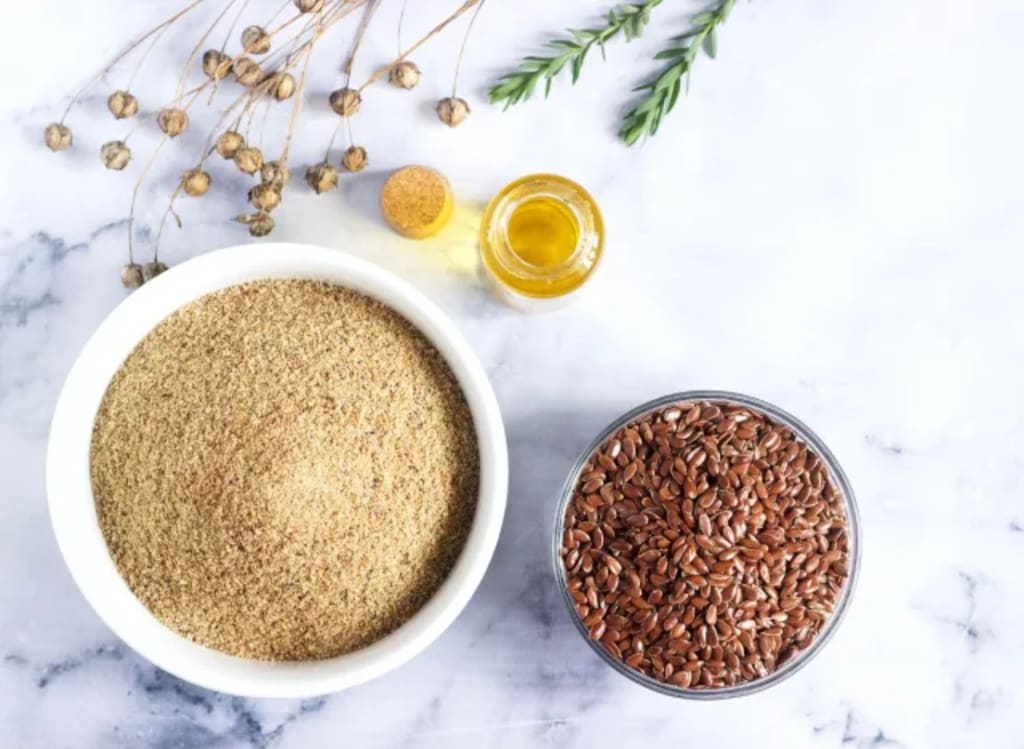
Have you ever wondered what flax seed was when you saw it on a granola bag or in an online recipe? Flax seeds are the underdog ingredient that you should start paying attention to, even if chia seeds are a little more frequently utilized in dishes like overnight oats or even pudding. especially once you discover all the amazing ways that this tiny seed may help your body!
Here are some of the various ways adding flax seeds to your recipes can improve your long-term health, as well as some cautions to keep in mind when you start, from enhancing digestion to lowering your risk of disease (and even boosting your cognitive performance!). Here are the next 5 healthiest seeds you should include in your diet for even more advice on eating well.
1 Flax seeds are bursting with fiber.
Flax seeds can be a wonderful place to start if you're wanting to effortlessly increase your fiber intake. A tablespoon of whole flax seeds has about 3 grams of fiber, or 11% of the daily required amount.
The American Heart Association recommends that you consume 25 to 30 grams of fiber on a daily basis, yet the average American only consumes 15 grams. In addition to hindering your attempts to lose weight, a low-fiber diet can also affect your digestion and potentially raise your chance of acquiring chronic diseases.
Start by including flax seeds in your morning meal. You may incorporate flax seeds into your morning bowl of oatmeal, your yogurt parfait's granola, your pancake batter, or even your smoothie!
2 Flax seeds are a rich source of omega-3 fatty acids.
Alpha-linolenic acid (ALA), a kind of necessary fatty acid that your body cannot generate, is particularly abundant in flax seeds. It can only be obtained through diet, and flax seeds are a great source of them.
In general, it has been demonstrated that ingesting omega-3 fatty acids reduces inflammation in the body, which can aid in preventing the emergence of chronic disorders. In particular, ALA has been connected to lowering blood pressure and lowering the risk of cardiac disease, including heart attacks and stroke.
In addition to walnuts, fatty fish, and other vegetables, flax seeds are a good source of ALA.
3 Flax seeds can benefit your overall heart health.
As previously discussed, ALA can aid in lowering your risk of heart disease. A review of studies published in Advances in Nutrition found compelling evidence linking ALA consumption to a lower risk of cardiovascular disease. This is because ALA is a polyunsaturated fatty acid (PUFA), which has been shown to lower the risk of heart disease and to have anti-inflammatory effects on the body. According to Advances in Food and Nutrition Research, they also have potent anti-hypertensive, anti-cancer, antioxidant, anti-depression, anti-aging, and anti-arthritis benefits.
Consuming flax seeds has been shown in studies to help decrease blood cholesterol levels. Your chance of developing cardiovascular disease can be raised by having a high amount of LDL "bad" cholesterol in your body, which can lead to a buildup in your arteries.
Additionally, flax seeds can significantly lower blood pressure, which is crucial for avoiding heart attacks and strokes.
4 Flax seeds can assist with digestion.
Natural laxative flax seeds are well known for aiding in digestion and relieving constipation. Flax seed, when added to baked goods, has been shown in a 12-week research to reduce glycemic and lipid levels, as well as the symptoms of constipation, in people with type 2 diabetes.
Consuming flax seeds has also been demonstrated to enhance the bacterial flora in your stomach, which has been found to positively impact the gut microbiome during digestion. According to Nutrients, it also reduces the quantity of Proteobacteria and Porphyromonadaceae, which have been connected to alcoholic liver damage.
5 Flax seeds can aid weight management.
Incorporating flax seeds into your diet can be an effective strategy to maintain a healthy weight since maintaining a healthy weight is crucial for long-term bodily health. According to Appetite, the fiber in flax seeds in particular can support feeling full for extended lengths of time.
Supplementing with flax seed has also been associated with improvements in insulin sensitivity and glucose regulation, both of which have been shown to affect weight management.
6 Flax seeds may reduce the absorption of some minerals.
You shouldn't be too concerned about this flax seed side effect, but if you have an iron or zinc deficit, you should be aware of it.
A form of antinutrient called phytic acid is found in flax seeds, and it can hinder the absorption of nutrients like calcium, zinc, magnesium, copper, and iron. According to the Journal of Food Science and Technology, while this would appear to be a drawback of eating flax seeds, the effects are so negligible that they pose no greater danger than those of soybean and canola seeds.
7 Flax seeds could cause digestive problems.
Even though fiber is good for your digestive system as a whole, ingesting too much of it at once can be problematic if you're not used to doing so. Bloating, gas, stomach pain, and perhaps even nausea can result from consuming too much fiber as once.
If you want to increase your intake of fiber, make sure to do it gradually to prevent any digestive discomfort. A delicious place to start is by adding flax seeds to your baked pastries or other typical breakfast foods.





Comments
There are no comments for this story
Be the first to respond and start the conversation.